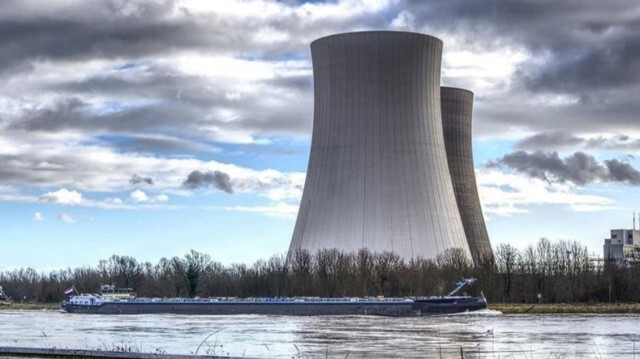
Nuclear watchdog sees ‘negligible impact on people, environment’ after release of Japan’s nuclear waste into sea
China on Tuesday dubbed the report on Japan's nuclear waste by the global nuclear watchdog as “limited,” saying it was no “greenlight” for Tokyo to release the treated water into the sea.
Beijing was responding to a report submitted by the International Atomic Energy Agency (IAEA) to Japanese Prime Minister Fumio Kishida over Tokyo’s plans of dumping nuclear waste into the sea.
The IAEA said the nuclear wastes from the crippled Fukushima nuclear plant into the sea will have a “negligible radiological impact on people and the environment.”
Beijing, however, said the International Atomic Energy Agency (IAEA) released the report in “haste” and added the IAEA “failed to fully reflect views from experts that participated in the review.”
“The conclusion was not shared by all experts,” China’s Foreign Ministry said in a statement.
The IAEA chief Rafael Grossi said: “Based on its comprehensive assessment, the IAEA has concluded that the approach and activities to the discharge of ... treated water taken by Japan are consistent with relevant international safety standards.”
“We believe that the IAEA report should not be the shield or greenlight for Japan’s discharge of nuclear-contaminated water into the ocean,” said Beijing.
“Due to its limited mandate, the IAEA failed to review the justification and legitimacy of Japan’s ocean discharge plan, assess the long-term effectiveness of Japan’s purification facility and corroborate the authenticity and accuracy of Japan’s nuclear-contaminated water data,” it said, adding: “The conclusion (of IAEA report) is largely limited and incomplete.”
Reminding Japan of the global support it received in the wake of the Fukushima nuclear disaster 12 years ago, China said: “(Now) Japan has chosen to shift the risk of nuclear contamination onto the whole humanity.”
“Simply for saving cost,” alleged China: “Japan has insisted on discharging the nuclear-contaminated water into the sea in disregard of the concerns and opposition from the international community and taken the Pacific Ocean as the ‘sewer’.”
China said Japan will “release millions of tons of Fukushima nuclear-contaminated water into the Pacific Ocean in the next three decades.”
Questioning the effectiveness of Japan’s purification facility, China asked Tokyo to “stop its ocean discharge plan, and earnestly dispose of the nuclear-contaminated water in a science-based, safe and transparent manner.”
“If Japan insists on going ahead with the plan, it will have to bear all the consequences arising from this.
“We urge the Japanese side to work with the IAEA to put in place as soon as possible a long-term international monitoring mechanism that would involve stakeholders including Japan’s neighboring countries,” the statement added.
Tokyo has said the treated nuclear waste will be released into the sea this summer as planned.
Japan's water discharge plan, announced in April 2021, faced significant criticism from China, South Korea, North Korea, Taiwan, and international organizations, including the UN.
The US supported the proposal, following years of discussions on dealing with over 1 million tons of water stored at the Fukushima nuclear complex since the 2011 disaster.
Despite the pressure, Japan last month initiated the injection of seawater into a drainage tunnel at the damaged Fukushima Daiichi Nuclear Power Plant, marking the initial stage of releasing treated radioactive wastewater into the ocean.
Hello, the comments you share on our site are a valuable resource for other users. Please respect other users and different opinions. Do not use rude, offensive, derogatory, or discriminatory language.
The floor is all yours.








